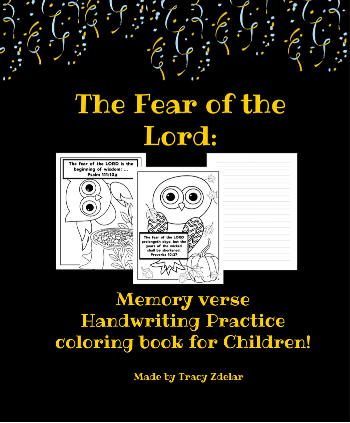Today’s post is really tucked neatly inside this pdf (the link is at bottom of this post). I just ran out of time to put it all in a post in addition to the printable form. I really want you to have the printable form to use in your personal study.
As you’re looking over these verses keep in mind that newer modern versions have changed the bible. I believe this is because many if not all of these versions use a different text to translate from – a text different from what was used in the KJV transliteration. Did you know that the KJV comes from more accurate texts than what Westcott & Hort used? I believe I read the reliability of the KJV text was around 96% whereas I think Westcott & Hort’s text was maybe 1%. Pretty scary to think so many people are trusting in such a terrible, awful “translation”.
There’s so much information about the issues underlying the reasons we have so many bible versions. Information Christians need to know, but it seems to me that it might not be “mainstream” for pastors to teach this to their church members. If your pastor uses a different version of the bible than the KJV then perhaps he hasn’t taken this seriously or just doesn’t believe it.
Does it really matter? Yes, it does. And I’m going to share with you just some of the information I have because I go to a bible-believing church that believes God means what he says and our pastors teach us the bible and how it relates to history. When you look at the world through the bible you see more clearly how God is at work.
And just some fyi, though our church is a Baptist church we are not from the protestant line of churches, we are not part of the Reformed churches and we do not accept Calvinism (TULIP) – and as if I need to add, we are not part of Catholicism. There’s more to church history than what you probably learned in school 😉 . If I can get “that” scanned into a printable I might just do it so you can see the difference.
We are bible believers just like the Christians in the very first New Testament church in Antioch mentioned in the book of Acts (and no we aren’t Jews) 🙂 .
Download and save or print the 2 page bible study below. I’ve numbered the pages so I can continue the study and you can keep them in order if you want to save them.
KJV Q&A Series: Revealing the holes in modern bible version and why they should not be trusted.
Now I need to get ready for bed, its very late. Good-nite or good-morning…whatever 🙂 .
*Sharing at the following link-ups: Women Living Well .









Always take context into account.
Check out Samuel Gipp’s Understandable History of the Bible and G.A. Riplinger’s New Age Bible Versions. I think you can find them both on Amazon – among other places.
After literally hours of researching this trying to decide on getting a copy of NKJV or maybe NIV to go along with my KJV I must say I think you are a little bias on this use. People like to use this as a strong point of putting down new translations and pointing out what today is thought of a negative word is a great way to do so. It seems the translation of slave is correct but also look at the pretext on this topic. It talks of being a slave to sin but through giving ourselves to Christ we can become free from sin and becomes slaves of God which is much better than being slave to sin. Your constant reference to Westcott & Hort is completely invalided when looking at both NIV and NKJV which both sought direction from oldest original text to be found and the KJV.
So before Moses freed the Jews from Egypt they was paying off a debt? Saying that slave meant paying off a debt isn’t 100% true as that was not always the case.
Just an update, I remember being told that both terms (servant and slave) are meanings of the same word used, but that “servant” was a more accurate meaning in this case. Which must be why the KJV translators used it over “slave”. I’m assuming.